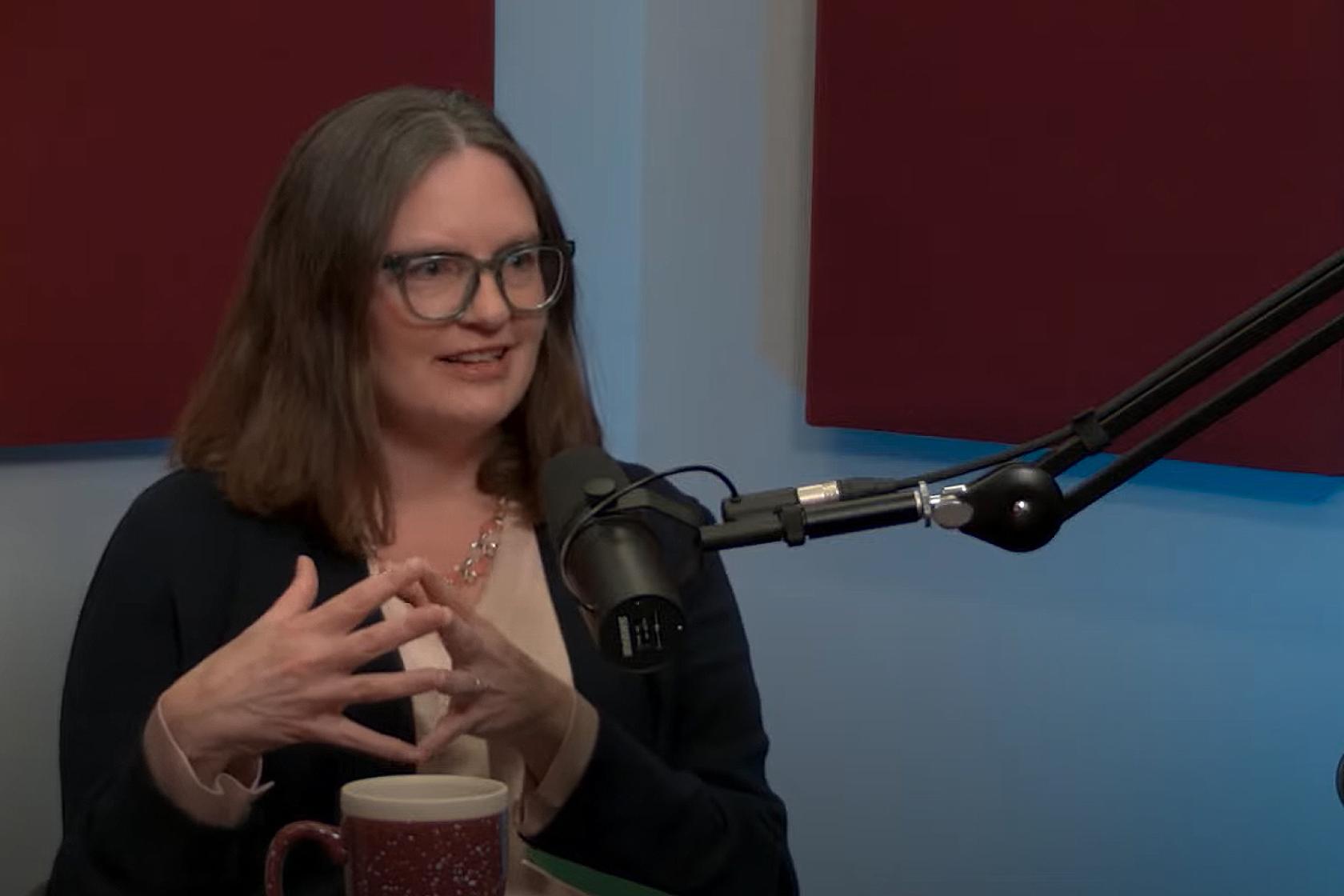Conversations With Colgate Leaders, the live broadcast featuring members of the Colgate University administration, continued on Feb. 17 with Provost and Dean of the Faculty Lesleigh Cushing.
Cushing, who is also Murray W. and Mildred K. Finard Professor in Jewish studies and professor of religion, took up her current position at the beginning of the 2022–23 academic year. During the broadcast, she spoke on topics ranging from academic freedom to classroom innovation — subjects that play integral roles in Colgate’s Third-Century Plan.
The University launched the Third-Century Plan during its Bicentennial Celebration in 2019. Developed through long-standing campus governance structures, the Plan advances efforts across the enterprise — from strengthening academic programs and enriching the student experience to attracting the best and brightest students, faculty, and staff.
“We have really done a lot to draw the best faculty members to Colgate,” Cushing said. “Over the last few years, through the Third-Century Plan, we’ve increased the leave allotment and the amount of startup funds for all faculty. We’re really trying to launch their scholarly careers as they begin at Colgate.”
Cushing also said that Colgate is transitioning to a 2-2 teaching load, in which faculty will teach two courses per semester rather than the previous method of a 2-3 or 3-2 teaching load. The adjustment reflects trends at other leading institutions of higher education across the country.
“We are really oriented toward teaching, and that is not going away,” she said. “We see this as enhancing research but also enhancing the ability of faculty members to have more intensive experiences in their engagements with students.”
The conversation also touched upon the rise of AI-generated essays and the role that the technology currently plays in a student’s academic life. Cushing emphasized the view that these tools can be used as learning opportunities.
“What we want to think about as teachers is, ‘How can those tools help our students with their writing?’ rather than, ‘How do we keep them at bay?’” she said, emphasizing the technology cannot yet make connections outside of word association. “What I like about being in conversation with our faculty members is the possibility and potential of this as a pedagogical tool.”
When asked about what she is looking forward to most over the coming few years, Cushing focused on the realization of goals that had been long sought but never realized.
“I’ve been here for 21 years, and this is an incredible moment to be at Colgate,” she said. “The sense of growth, excitement, ability, and willingness to enact our dreams is very exciting.”
